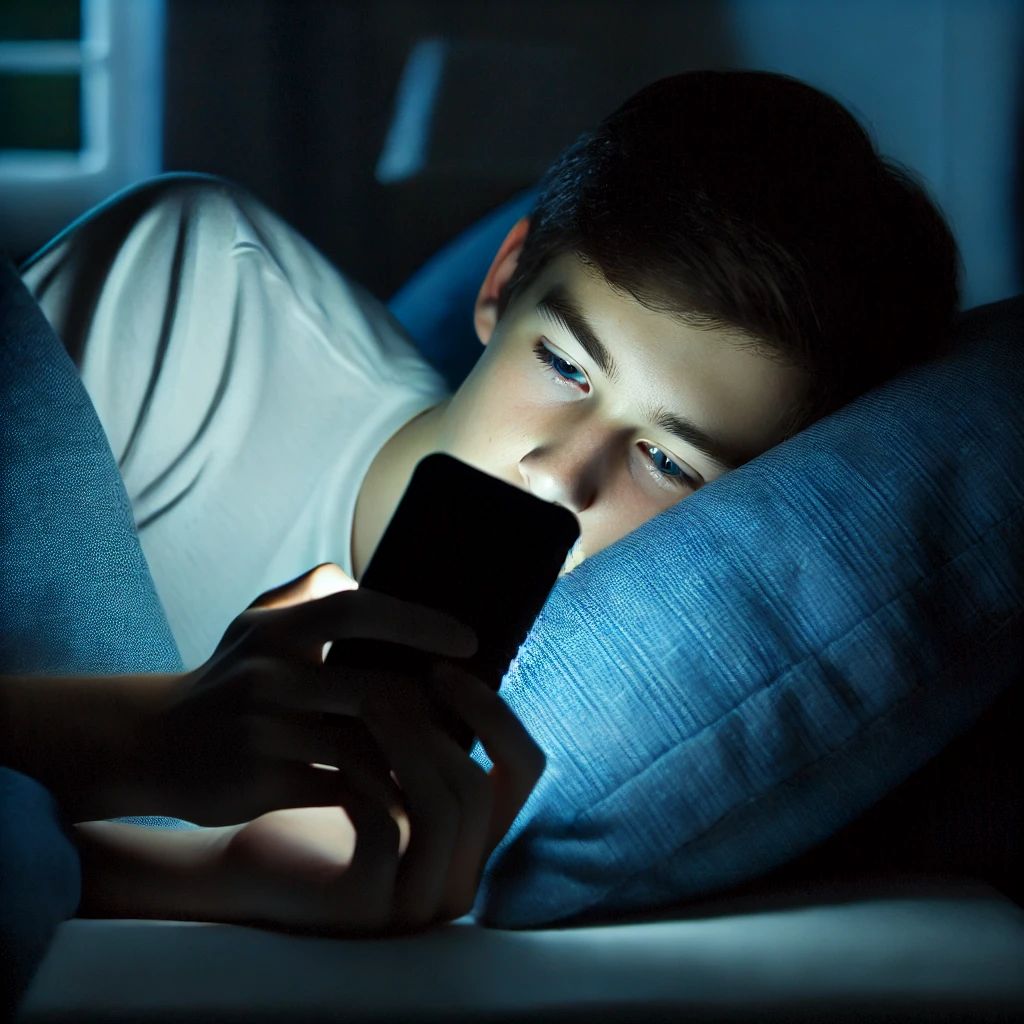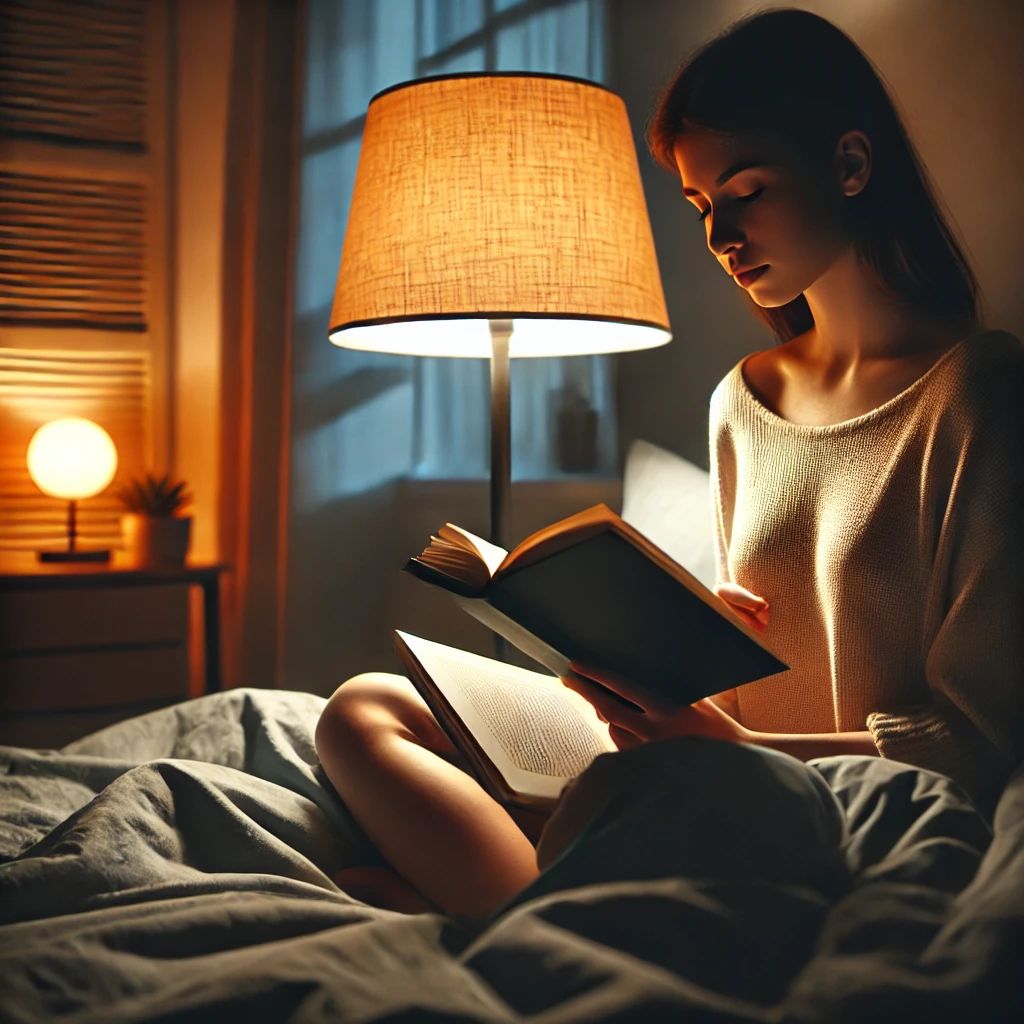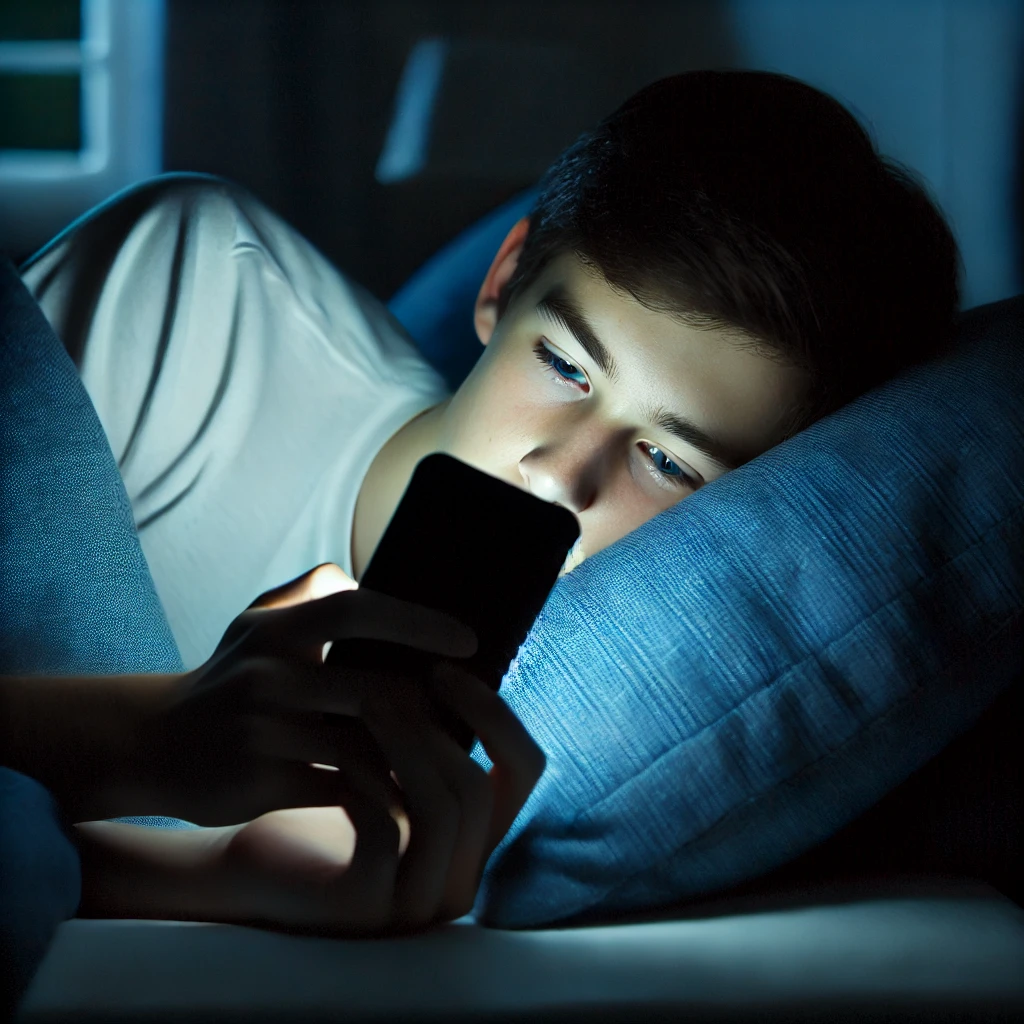In today’s digital world, screens are a part of almost every aspect of daily life, especially for young people. Whether it’s staying up late watching videos, playing games, or scrolling through social media, the allure of screens is hard to resist. However, there’s growing concern about how using screens late at night may be affecting sleep quality. Research suggests that exposure to blue light from screens can interfere with the body’s circadian rhythm, delaying the onset of sleep. In this article, we will explore how using screens before bed can disrupt sleep and what you can do to improve your nighttime routine.

The Role of Blue Light
Blue light is a type of light emitted by devices like phones, computers, and tablets. During the day, exposure to blue light helps regulate your body’s internal clock by keeping you alert and awake. However, at night, this same blue light can cause problems by tricking your brain into thinking it’s still daytime. This can suppress the production of melatonin, the hormone that signals to your body that it’s time to sleep.
When melatonin production is delayed, it becomes harder to fall asleep, and your sleep quality is reduced. Studies suggest that people who use screens late into the night are more likely to experience difficulty falling asleep and may get less restorative sleep overall.
Scientific Evidence
Several studies have shown a strong link between screen use before bed and poor sleep quality. For example, a study published in PLOS ONE found that participants who used devices emitting blue light in the hours leading up to sleep had significantly lower melatonin levels, took longer to fall asleep, and had shorter sleep durations. Another study by Harvard Medical School revealed that blue light exposure before bedtime can shift the circadian rhythm by up to two hours, leading to chronic sleep deprivation over time.
How to Reduce the Impact of Screens on Sleep
To protect your sleep from the negative effects of blue light, consider the following tips:
Use Night Mode: Many devices offer a “night mode” or “blue light filter” setting, which reduces the amount of blue light emitted in the evening.
Limit Screen Time: Try to avoid using screens at least 30 minutes to an hour before bedtime.
Opt for Relaxing Pre-Sleep Activities: Engage in relaxing activities like reading a book, meditating, or listening to soft music to wind down before bed without using devices.

By adopting these practices, you can help your body prepare for sleep naturally, without the disruptive influence of screens.
Using screens late at night can disrupt sleep by delaying the production of melatonin and shifting the body’s internal clock. For better sleep quality, it’s important to reduce screen time before bed and focus on activities that promote relaxation and prepare the body for restful sleep.
You Might Also Like:
Sleeping on the Floor: Best for Your Back or Just Another Trend?
Headphones and Hearing Loss: How Dangerous Is It Really?
The Power of Silence: How Quiet Moments Can Transform Your Health
Digital Detox: How Disconnecting from Technology Can Boost Creativity
